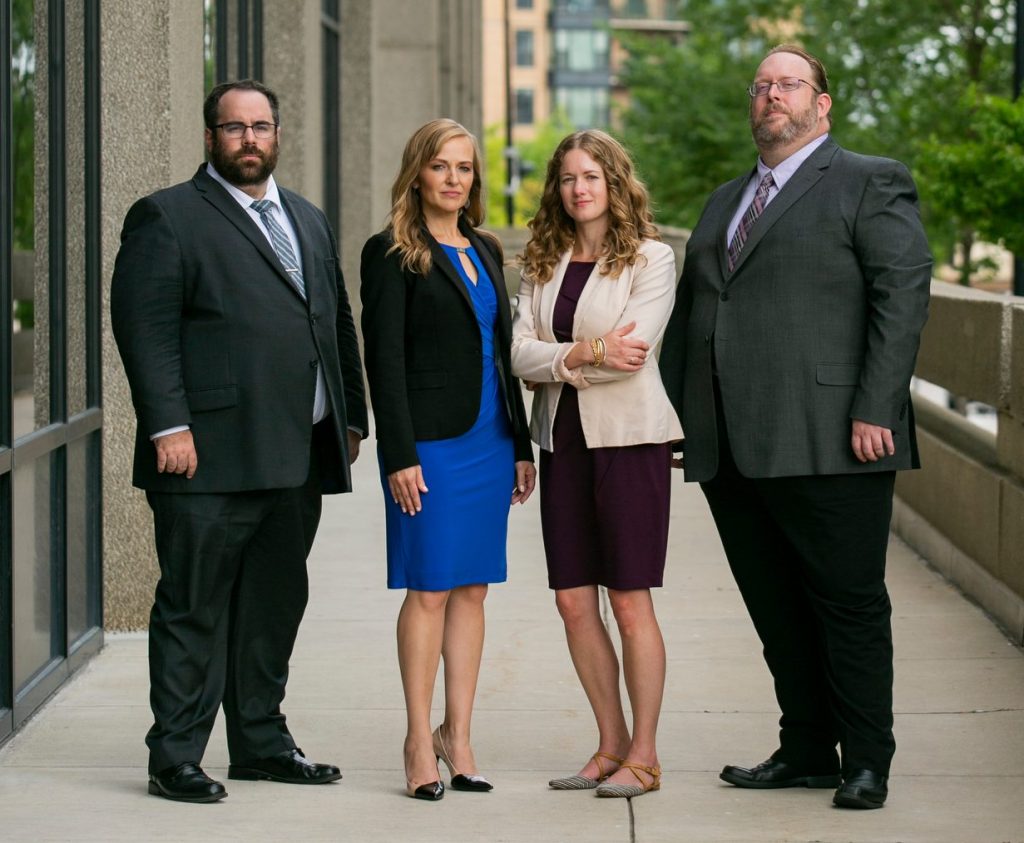KEW knows Manufactured Housing Communities (MHCs) – the dos, the don’ts and everything in between.
Manufactured housing means homes that are factory-built and can be placed on a piece of land. Manufactured Housing Communities (also known as Mobile Home Communities, or “MHC”) rent out sites, or lots, for the placement of manufactured homes. MHCs fall under a unique subset of MHC specific laws while also being subject to laws governing landlords. This makes representation of MHCs particularly interesting and challenging, requiring in-depth knowledge of a large range of MHC related subject matters, in addition to general landlord-tenant law. For over a decade, the attorneys and paralegals at KEW have become well-versed in the legal issues facing MHCs, including handling evictions and other matters in many counties throughout Wisconsin.

Although landlord-tenant rules govern the operation of an MHC, many notable differences exist between MHCs and other rental properties. For example, in general, a non-MHC landlord may determine to non-renew a lease for any non-discriminatory reason, or even no reason at all. However, when an MHC landlord wants to non-renew a tenant’s (also called resident in the MHC world), it needs good cause. In addition, an MHC must offer a lease for a minimum of one year, unless a tenant specifically requests a shorter period, whereas a landlord of a non-MHC can offer a tenant a shorter residency.
Water and sewer issues, including sub-metering, are a constant source of frustration for MHC owners as Wisconsin law has extremely specific requirements on the matter. A Wisconsin MHC lease must specify whether utilities are included in the rent, and the MHC lease must also specify the method for determining the charges. Failure to comply can be costly as the law allows for recovery of double damages and attorney’s fees if the MHC sis not comply and a tenant sues.
With some exception, Monthly Municipal Permit Fees (MMPF), sometimes called parking permit fees or parking taxes, are charged to owners of manufactured homes in lieu of property taxes. The tax rate applied to each home is the based on the value of the home, similar to real property taxes. But, the collection method and distribution of the taxes and their impact differs. Typically, an MHC owner collects these amounts from each individual manufactured home owner and remits them to the municipal treasurer on a monthly basis. Proper collection of MMPFs is mandated by state law, as well as the documentation required in a lease authorizing such collection.
As is typical for most issues surrounding manufactured homes, Wisconsin has specific rules regarding the sale of a home. For example, with limited exceptions, if a company is going to sell multiple homes in a year, the sale requires a Manufactured Home Dealer License. At times, issues surrounding the sale of a home may arise where the home is not movable and must remain at the MHC. Other issues involving private sales by a resident may cause headaches for the MHC. For example, what happens if the buyer has not yet been approved for residency at the MHC, or if the home is sold unbeknownst to the MHC? Navigating this and other issues relating to the sale of manufactured homes involves a thorough analysis of Wisconsin MHC law, with which KEW attorneys are intimately familiar.
As all MHC owners and operators are aware, manufactured homes may become abandoned at the MHC and left in varying conditions. Managing this situation requires, for starters, determining the titled owner of the home, and providing proper notification to the appropriate parties of the MHCs intent to dispose of the home. Close compliance with Wisconsin law regarding abandonment procedures protects an MHC. Failure to comply with Wisconsin statutory requirements regarding abandonment is an invitation not only for a consumer complaint but potentially a civil action for theft.

A lease is an agreement between the MHC and the resident who lives in the MHC, who most often owns the home. The lease establishes rules, requirements, and obligations for residency within the MHC. MHC tenants who own their own homes sign what is commonly called a “site lease”, the lease for the plot of land upon which their home will sit. When MHCs rent manufactured homes to tenants, they need to be sure their lease, or a separate home rental lease, addresses additional rules and obligations pertaining specifically to the rental of the home.
In addition to a site lease, regulations require that MHCs have written rules and regulations. These are commonly a separate document that are part of a lease package, and explain additional requirements for residents of an MHC. Information such as parking rules, garbage collection, snow removal, and site or lot maintenance requirements are often found in the rules and regulations which accompany a lease.
Although not a manufactured home as defined by Wisconsin law, recreational vehicles (RVs) have some similarity to manufactured homes, and some MHCs also have separate sections for RVs. The rules regarding RVs sometimes overlap, and sometimes differ from those that pertain to manufactured homes. For example, while manufactured homes can permanently reside in an MHC, a recreational vehicle is not permitted to be occupied in one site for more than eight continuous months in any twelve month period. Additional requirements may be imposed by the local municipality which grants a license to operate the campground/RV section.
KEW represents landlords and property management companies with apartments, single family homes and more. For more information about our landlord work, check out KEW’s Landlords page.
Attorneys Jessica M. Kramer and Joe Andreoni work on Manufactured Housing Community matters, with all KEW attorneys providing assistance as needed. To determine whether KEW may provide legal assistance on your MHC matter, contact KEW at info@kewlaw.com or 608-709-7115.